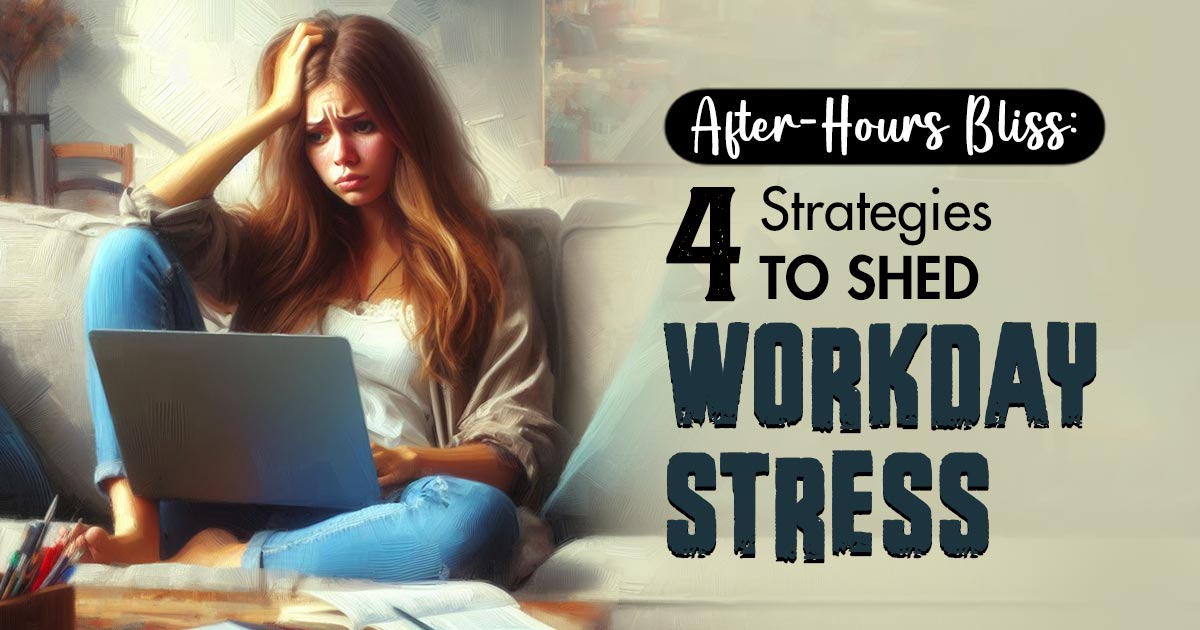In today’s fast-paced work environment, our boundary between what is professional and what is personal life often blurs. This makes it challenging to leave work-related stress at the office. Carrying work stress home is a prevalent issue which can significantly impact our mental health, relationships, and overall well-being.
What Does Carrying Work Stress Home Look Like?
Carrying work stress home manifests in various ways, thereby affecting both our physical and mental states. The most common sign is our inability to detach ourselves from work mentally, even when we are physically at home. Constant rumination about our tasks, deadlines, and workplace dynamics can lead to heightened anxiety, irritability, and restlessness. Sleep disturbances are another common symptom, as our mind races with work-related apprehensions and associated worrying thoughts, preventing a restful night’s sleep.
Additionally, carrying work stress home often affects our interpersonal relationships. We may find ourselves irritable, withdrawn, or emotionally distant under work pressure and neglect our personal connections and other aspects of our family dynamics. Physical health can also be compromised, with stress contributing to headaches, muscle tension, a weakened immune system, and a plethora of mental health conditions.
Can Carrying Work Stress Home Harm Your Mental Health?
Carrying work stress home can also harm mental health. Chronic exposure to work stress has been linked to various mental health disorders, including anxiety, depression, mood disorders, sleeping disorders, eating disorders, and self-harm. The continuous activation of the body’s stress response system can lead to an imbalance in neurotransmitters and even structural and functional changes in the brain.
Moreover, persistent stress can negatively impact cognitive function, impairing concentration, decision-making, and memory. Over time, this cognitive strain can lead to burnout (a state of physical, emotional, and mental exhaustion) often accompanied by a sense of detachment from work, reduced performance, and absenteeism.
Unwinding And De-stressing After Work Hours: Tips And Strategies
Consider the following tips to unwind and de-stress after work hours:
1. Set Clear Work Boundaries:
Start by defining specific work hours. Create a sound work-life balance and a dedicated home workspace. This includes avoiding work-related activities outside certain hours (like emailing or receiving work-related calls).
2. Exercise Regularly:
Boost mood with endorphins by partaking in activities like walking, yoga, meditation, or fitness classes. Enhances sleep quality with ASMR techniques or light therapy for better stress management.
3. Enjoy Hobbies:
Pursue activities that bring joy and relaxation like reading, painting, or playing an instrument.
4. Nurture Social Ties:
Instead of worrying about work, spend quality time with friends and family. Seek emotional support outside of work and build a strong support network that supports you through thick and thin.
Always Carrying Work Stress Home? Consult A Therapist Sometimes some people develop a compulsion for carrying work stress home. These individuals tend to develop workaholism or chronic work addiction that has long-term implications for their physical and mental health, as well as social relationships. If you think you or a loved one is displaying such symptoms, consider availing professional help. This may help you or your loved one develop a healthy approach toward work, the life in office, and the life that await after working hours.




























